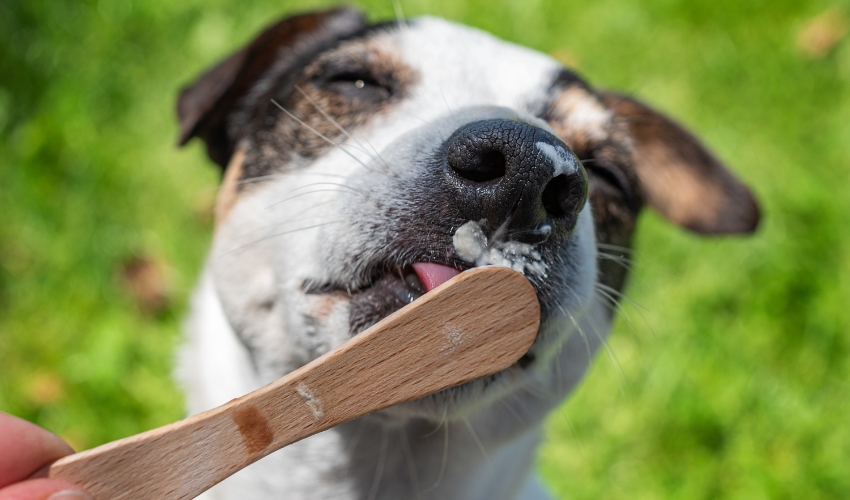The rise in canine obesity presents a critical concern for pet owners worldwide. In this comprehensive guide, we’ll delve into the complexities of the canine obesity epidemic, addressing the detrimental effects of excess weight on dogs’ health and well-being. We’ll explore effective strategies for managing and preventing obesity through proper diet, exercise, and lifestyle changes. By demystifying canine obesity and promoting healthy weight management practices, we can ensure our furry companions lead happier, healthier lives.
Understanding Canine Obesity:
Canine obesity occurs when a dog accumulates excess body fat, resulting from an imbalance between calorie intake and energy expenditure. This imbalance can stem from various factors, including overfeeding, lack of exercise, genetic predisposition, and underlying medical conditions. Over time, obesity can lead to a host of health problems, ranging from joint pain and mobility issues to diabetes, heart disease, and reduced lifespan. Recognizing the signs of obesity and understanding its underlying causes are crucial steps in addressing this pervasive issue.
The Problems of Canine Obesity:
The consequences of canine obesity extend far beyond cosmetic concerns, affecting nearly every aspect of a dog’s health and quality of life. Excess weight places strain on the joints, increasing the risk of arthritis and musculoskeletal problems. Obese dogs are also more susceptible to respiratory difficulties, heat intolerance, and skin conditions due to reduced mobility and compromised immune function. Moreover, obesity is a significant risk factor for serious medical conditions such as diabetes mellitus, cardiovascular disease, and certain types of cancer. These health issues not only diminish a dog’s quality of life but can also lead to significant veterinary expenses and emotional distress for pet owners.
Dietary Considerations:
A balanced and nutritious diet is essential for managing and preventing canine obesity. Choose high-quality dog food formulated to meet your dog’s specific nutritional needs based on factors such as age, breed, size, and activity level. Opt for lean protein sources, whole grains, and healthy fats while minimizing the use of fillers, artificial additives, and excessive carbohydrates. Be mindful of portion sizes and avoid overfeeding, as excess calories can quickly lead to weight gain. Consider incorporating fresh fruits and vegetables as healthy snacks or meal toppers to provide additional nutrients and promote satiety. If you’re unsure about your dog’s dietary requirements or need guidance on selecting the right food, consult with your veterinarian or a qualified pet nutritionist for personalized recommendations.
Preventive Measures:
Preventing canine obesity requires a proactive approach that addresses both diet and lifestyle factors. Establish a regular feeding schedule and measure out appropriate portion sizes to prevent overeating. Avoid free-feeding or leaving food out throughout the day, as this can contribute to excessive calorie consumption. Encourage regular exercise and physical activity to help your dog burn calories, build muscle mass, and maintain a healthy weight. Incorporate daily walks, playtime, and interactive games to keep your dog mentally and physically stimulated. Monitor your dog’s weight and body condition regularly, and consult with your veterinarian if you notice any changes or concerns. By taking preventive measures early on, you can help your dog maintain a healthy weight and reduce the risk of obesity-related health problems.
Elevating your dog’s overall health extends beyond mere weight management; it encompasses a holistic approach that encompasses various facets of their well-being. Here’s how you can ensure your furry friend thrives in every aspect of their life:
Routine Veterinary Check-ups: Scheduling regular visits to the veterinarian is crucial for maintaining your dog’s health and catching any potential issues early on. During these check-ups, your vet can assess your dog’s weight, body condition, and overall health status. Additionally, they can conduct screenings for underlying medical conditions that may predispose your dog to obesity, such as thyroid disorders or hormonal imbalances.
Example: Just like humans, dogs benefit from regular health check-ups. During these appointments, your vet can provide personalized recommendations for maintaining your dog’s optimal health and well-being.
Vaccination Protocols and Parasite Control: Adhering to recommended vaccination schedules and administering parasite control measures is vital for safeguarding your dog against infectious diseases. Vaccines protect your dog from common viruses and bacteria, while parasite control prevents infestations of fleas, ticks, and intestinal parasites that can compromise their health.
Example: Keeping up with your dog’s vaccination schedule helps prevent diseases like distemper, parvovirus, and rabies, ensuring they stay healthy and happy.
Prioritizing Dental Hygiene: Dental care is often overlooked but is essential for your dog’s overall health. Poor oral hygiene can lead to dental disease, which not only causes discomfort but can also contribute to systemic health issues such as heart disease and kidney problems. Implementing a regular dental care routine, including brushing your dog’s teeth and providing dental treats or toys, can help maintain their oral health.
Example: Regular brushing and dental cleanings can prevent dental issues, ensuring your dog’s mouth stays healthy and pain-free.
Mental Stimulation and Enrichment Activities: Mental stimulation is just as important as physical exercise for your dog’s well-being. Engage your dog’s mind with interactive toys, puzzle feeders, and training sessions to prevent boredom and promote cognitive function. Enrichment activities such as scent games, agility courses, and obedience training provide mental stimulation and keep your dog’s brain sharp.
Example: Interactive toys, like treat-dispensing balls or puzzle toys, can keep your dog entertained and mentally engaged, preventing boredom and destructive behaviors.
Building a Strong Bond Through Training and Socialization: Positive reinforcement training methods not only teach your dog essential commands but also strengthen your bond with them. Socialization with other dogs and people helps prevent behavioral issues and fosters confident, well-adjusted dogs. Additionally, spending quality time with your dog through play, walks, and cuddle sessions strengthens your emotional connection and promotes a harmonious relationship.
Example: Training classes or agility courses provide opportunities for your dog to learn new skills while bonding with you in a fun and engaging environment.
By incorporating these comprehensive care measures into your dog’s routine, you can ensure they lead a fulfilling, healthy life. Prioritizing their overall health and well-being goes hand in hand with effective weight management, creating a foundation for a long-lasting and loving relationship with your furry companion.
Canine obesity is a prevalent and preventable condition that poses significant risks to dogs’ health and well-being. By understanding the underlying causes of obesity and implementing healthy weight management strategies, we can help our furry companions achieve and maintain a healthy weight, thereby enhancing their quality of life and longevity. From proper nutrition and exercise to preventive care and overall health promotion, there are many ways to support your dog’s well-being and prevent obesity-related health problems. Together, let’s demystify the canine obesity epidemic and empower pet owners with the knowledge and resources they need to ensure their dogs lead happier, healthier lives.












